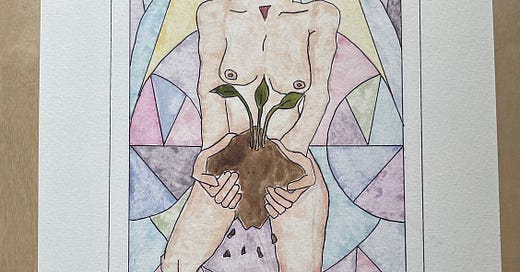The Tarot Of Songwriting - 02 The High Priestess
Julia Fox, Psychomagic and the Inscrutable Feminine
The High Priestess -
When I was 24 and living in east LA, I visited an energy healer at an establishment called The House of Intuition on Sunset Boulevard. She performed her skit, I guess you could call it, and offered me a care plan. One year into living in the self-indulgent capital of the world, I was mainlining Kool-Aid at that point and down for wh…



